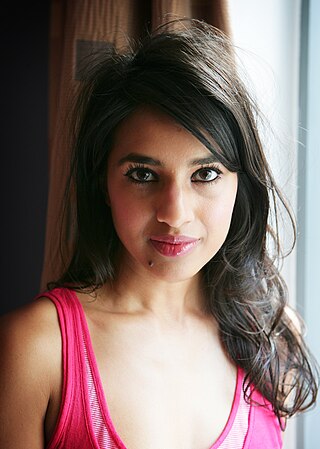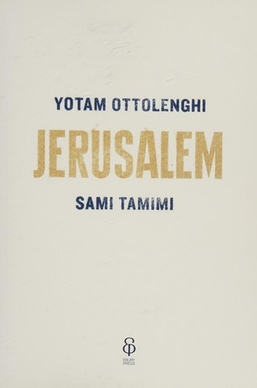
Hummus, is a Middle Eastern dip, spread, or savory dish made from cooked, mashed chickpeas blended with tahini, lemon juice, and garlic. The standard garnish in the Middle East includes olive oil, a few whole chickpeas, parsley, and paprika.

Cholent or Schalet is a traditional slow-simmering Sabbath stew in Jewish cuisine that was developed by Ashkenazi Jews first in France and later Germany, and is first mentioned in the 12th century. It is related to and is thought to have been derived from hamin, a similar Sabbath stew that emerged in Spain among Sephardic Jews and made its way to France by way of Provence.

Heston Marc Blumenthal is an English celebrity chef, TV personality and food writer. His restaurants include the Fat Duck in Bray, Berkshire, a three-Michelin-star restaurant that was named the world's best by the World's 50 Best Restaurants in 2005.

James Martin is a British chef and television presenter, best known for his television work with the BBC and ITV.

Ken Hom is a Chinese-American chef, author and television-show presenter for the BBC, specialising in Asian and East/West Cuisine. Already appointed an honorary Officer of the Order of the British Empire (OBE) in 2009 for "services to culinary arts", he was further appointed an honorary Commander of the Order of the British Empire (CBE) in 2022.

Najmieh Khalili Batmanglij is an Iranian-American chef and cookbook author. Born in Tehran, she fled the Iranian Revolution in 1979, moving first to France, then the United States, building a career as a cookbook author as she went. Her first book, published in French, was called Ma Cuisine d’Iran (1984), followed by eight cookbooks in English, from Food of Life (1986) to Cooking in Iran (2018). The Washington Post hailed her in 2018 as "the grande dame of Iranian Cooking."

Claudia Roden is an Egyptian-born British cookbook writer and cultural anthropologist of Sephardi/Mizrahi descent. She is best known as the author of Middle Eastern cookbooks including A Book of Middle Eastern Food, The New Book of Middle Eastern Food and Arabesque—Sumptuous Food from Morocco, Turkey and Lebanon.

Fuchsia Charlotte Dunlop is an English writer and cook who specialises in Chinese cuisine, especially Sichuan cuisine. She is the author of seven books, including the autobiographical Shark's Fin and Sichuan Pepper (2008). According to Julia Moskin in The New York Times, Dunlop "has done more to explain real Chinese cooking to non-Chinese cooks than anyone".

Ravinder Bhogal is a food writer, restaurateur, British chef, journalist and stylist. She opened her first restaurant Jikoni in Marylebone, London in September 2016.
Simon Charles Hopkinson is an English food writer, critic and former chef. He published his first cookbook, Roast Chicken and Other Stories, in 1994.
Dan Lepard is an Australian baker, food writer, photographer, television presenter and celebrity chef. He was previously a fashion photographer working for Italian Vogue before changing careers age 27, and is today known for reconciling historical methods with innovation in baking.

Bethany Kehdy is a Lebanese-American Chef, cookbook author, presenter and beauty pageant titleholder. She specialises in the cuisines of the Mediterranean, Middle East and North Africa.
Diana Henry is a British food writer. Born in Northern Ireland, she is author of nine cookery books on subjects including books on cooking chicken, healthy eating, gastropubs, preserving and Nordic cuisine.

Claire Ptak is an American baker, food writer, and food stylist. She owns and runs a bakery-café Violet Cakes in London's East End. In addition, she has published an array of cookbooks and written a food column for The Guardian and The Observer. She is widely known for having baked the royal wedding cake for the wedding of the Duke and Duchess of Sussex – a layered sponge filled and covered with a lemon and elderflower buttercream icing.

Fried cauliflower is a popular dish in many cuisines of the Middle East, South Asia, Europe, and elsewhere. It may start from raw or cooked cauliflower; it may be dipped in batter or breading; it may be fried in oil, butter, or other fats. It can be served on its own, as a mezze or side dish, or in a sandwich. It is often seasoned with salt, spices, and a variety of sauces, in the Middle East often based on tahini or strained yogurt.
Sami Tamimi is a Palestinian chef and author living in London. He is the co-owner of six delis and restaurants in London. Tamimi is also the co-author of several bestselling cookbooks, including Ottolenghi (2008), Jerusalem (2012) and Falastin (2020).

Pilpelchuma, also spelled pilpelshuma, is a chilli-garlic paste similar to a hot sauce originating from the Libyan Jews and commonly used in Israeli cuisine.
The James Beard Foundation Awards are annual awards presented by the James Beard Foundation to recognize culinary professionals in the United States. The awards recognize chefs, restaurateurs, authors and journalists each year, and are generally scheduled around James Beard's May birthday.

Jerusalem: A Cookbook is a 2012 cookbook by Jewish-Israeli Yotam Ottolenghi and Palestinian Sami Tamimi about food in Jerusalem. The book explores cuisine and traditions in the authors' shared hometown.
Tatbila is an Israeli condiment that is similar to a hot sauce and is typically served as a topping for hummus, and also as a sauce for falafel, shawarma, and other dishes popular in Israeli and Palestinian cuisine.














